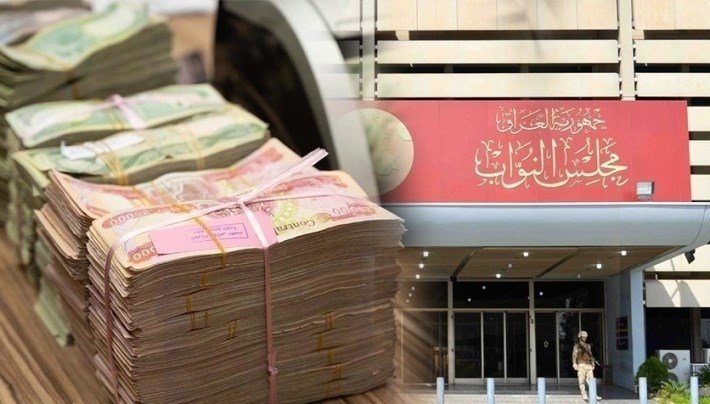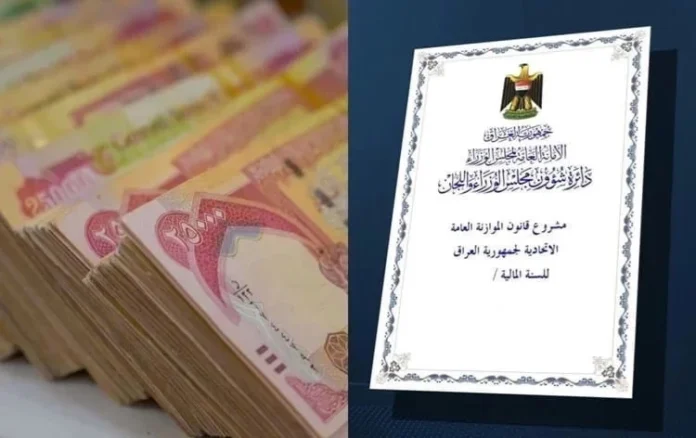With mounting analysis and calls to accelerate sending the ongoing year’s financial plan to Parliament, uncertainty actually encompasses the financial plan, because of the public authority and the Service of Money’s postpone in sending it.
Despite the fact that Money Clergyman Taif Sami swore to finish the timetables and send them soon to the Gathering for endorsement, over a month has passed since Sami guaranteed that they would before long be sent, thus far we have not seen approval for them to arrive at Parliament.
Simultaneously, various individuals from the Place of Delegates supported the purposes behind the postpone on the obligation of the services, which have not finished their arrangements with respect to the slacking projects, as the public authority is attempting to close this document, as well as the distinction in costs and cash values.
Delegate Administrator of the Parliamentary Arranging Panel, MP Muhammad Al-Baldawi, told Al-Maalouma, “The public authority’s postpone in sending the financial plan plans is because of the services not finishing their arrangements in regards to the slacking projects, as well as issues connected with the timetables and sums dispensed to the Kurdistan locale of Iraq, particularly after the new choices gave by the Bureaucratic Court, which committed the public authority.” ” Using it.

He added, “A large portion of these reasons and obstructions have been overwhelmed by the public authority and that they will be shipped off Parliament very soon.”
Members of the House of Representatives, on the other hand, criticized the government’s delay in sending the amended budget schedules for the current year 2024 for study and approval. This is despite the fact that the schedules are part of a tripartite budget for three years and only require a few adjustments to the numbers of the spending and revenue chapters, and the country has become accustomed to violating legal timings.
On Walk 13, the Service of Money declared the consummation of information connected with the 2024 financial plan plans, the incorporation of messages, and sending them to the Committee of Priests.
For his part, Atwan Al-Atwani, the head of the Parliamentary Finance Committee, explained why the budget schedules for 2024 were delayed because the government changed its mind about how much money it needs to spend this year.
Al-Atwani said in a press explanation, “The explanations behind the defer in the timetables are because of the requirement for some consumption segments to be surveyed and supported for the ongoing year’s spending plan for governorates and establishments,” taking note of that “public uses are supposed to ascend during this year contrasted with the 2023 spending plan because of the presentation of new tasks.”
The 2024 budget schedules are crucial for securing allocations, financing resources for state projects, and establishing ceilings for public spending.
As far as it matters for him, an individual from the Place of Delegates, Sajjad Salem, expressed that there is foul play in many agreements and everyday techniques because of the Service of Money’s hesitance to carry out the arrangements of the general spending plan, adding that we are hanging tight for the timetables of the spending plan regulation to be changed during the current year.

He included an explanation to , “Parliament is sitting tight for the timetables for correcting the spending plan regulation from the Iraqi government, as the Service of Money is falling behind on large numbers of the arrangements of the spending plan regulation for the year 2023, and we don’t have the foggiest idea what the public authority’s aim is in regards to revising the financial plan regulation for the ongoing year.”
It is interesting to note that the current year’s draft budget law is worth 197 trillion and 828 billion dinars, or about 152.2 billion dollars, and has a total deficit of 63 trillion dinars, or 48.3 billion dollars. On the other hand, the numbers in the budgets for the next two years will change depending on what is happening at the time.





